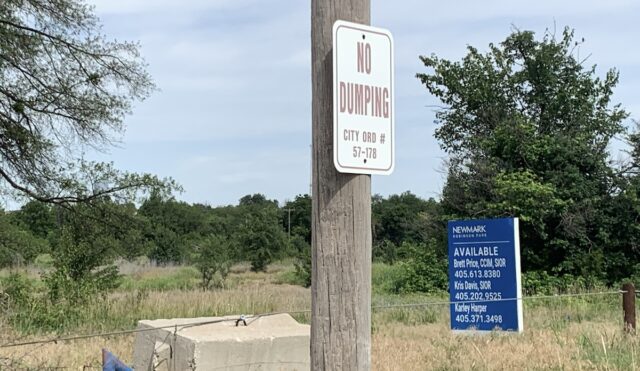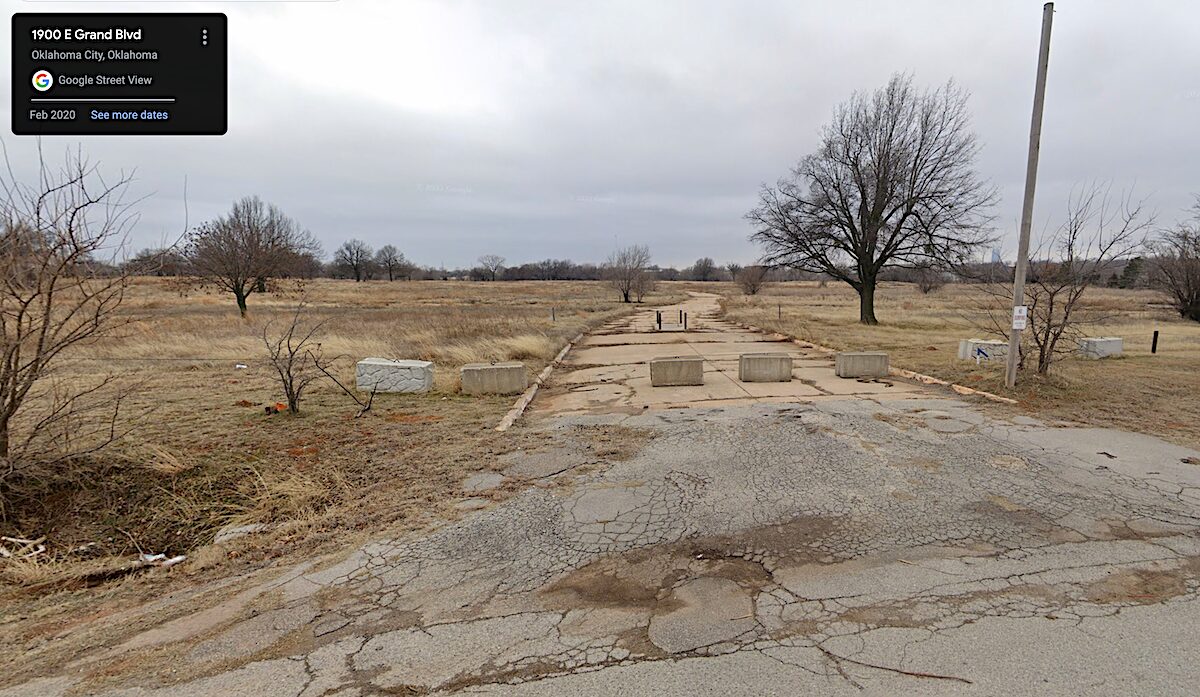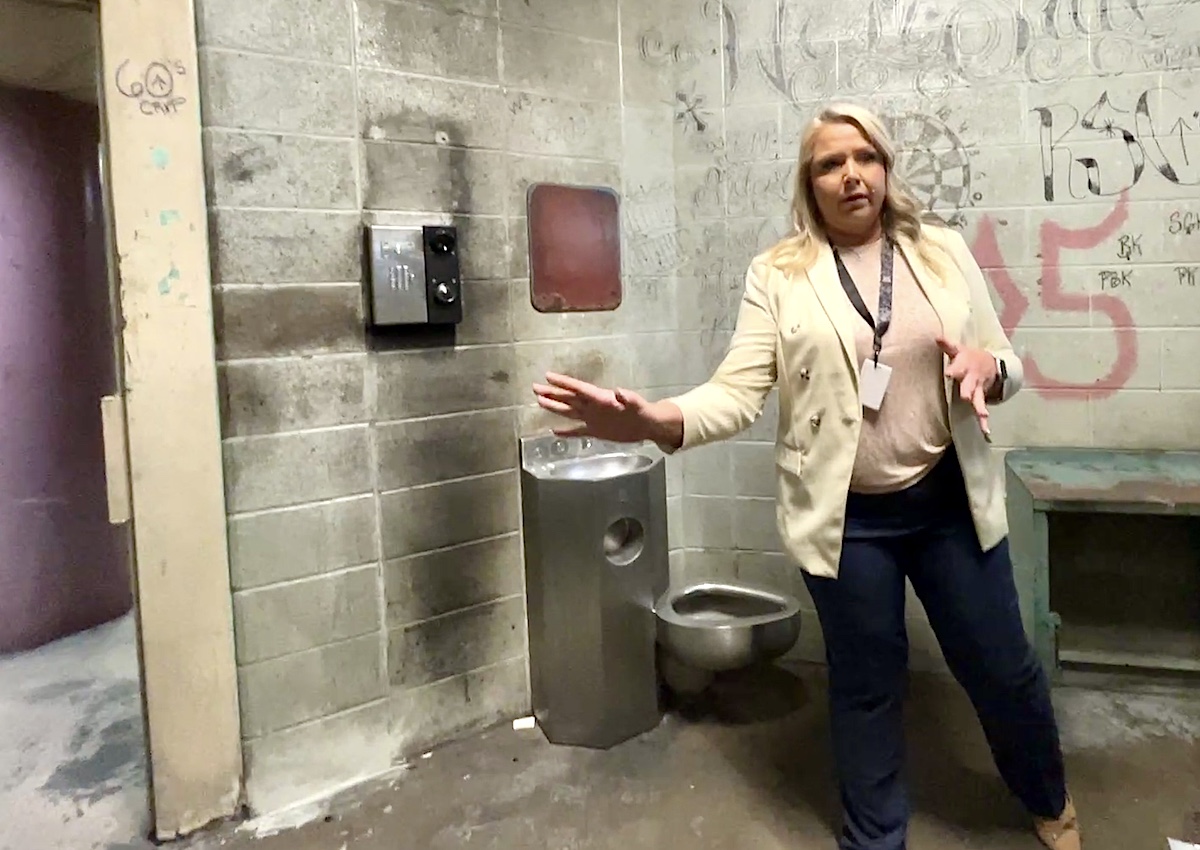

In the most recent court filing between two warring governments over a location for the new Oklahoma County Jail, the City of OKC’s attorneys believe Oklahoma County’s lawsuit claiming sovereignty should be dismissed because the county has failed to state a claim for relief and Oklahoma County District Court lacks jurisdiction to conduct a judicial review of Oklahoma City zoning decisions.
In May, the OKC City Council denied a special use permit that would have allowed the jail to be built at 1901 E. Grand Blvd. in Oklahoma City. Nonetheless, the county purchased the proposed site’s 71 acres on June 10 for about $5 million. (In a previous action, the OKC City Planning Commission had advanced the use of the site for the jail in an April meeting.)
On June 18, the county then filed a lawsuit against the City of OKC asserting that its sovereignty and its mandate to provide jail services mean municipal zoning restrictions are largely irrelevant. This issue could ultimately be decided by the Oklahoma Supreme Court.
RELATED
New Oklahoma County Jail soap opera hangs on a cliff by Matt Patterson
In its 52-page response dated July 11, OKC’s attorneys argued to District Court Judge Don Andrews that the county must prove the decision was made arbitrarily in order to overturn the OKC City Council’s denial.
“A party seeking to overturn a legislative zoning decision of the city must prove the decision was arbitrary, unreasonable, or capricious. In making such a determination the district court must apply the ‘fairly debatable’ rule to ascertain whether the reasonableness of the ordinance is ‘fairly debatable,'” attorneys wrote. “The court cannot interfere with a particular zoning restriction if reasonable minds may differ as to whether such restriction is reasonable or has a substantial relation to one of the purposes of police power.”
Del City ‘holds a great interest in the litigation’

Meanwhile, the City of Del City has filed a motion to intervene in Oklahoma County’s lawsuit seeking to override the City of OKC zoning denial.
In its July 9 filing, Del City attorneys argued that Oklahoma County’s attempt to develop the land at 1901 E. Grand Blvd. holds relevance to Del City’s future, including operation of its core services.
While the plot of land in dispute is technically across the street from Del City’s western boundary, residents and city officials have long argued that building the jail at the site would create a hazard for their community. In their filing, Del City officials said the City of OKC does not object to their request for intervention, which could follow two paths: intervention of right and permissive intervention.
In the first path, Del City officials argue the proposed jail location would impair or impede the city’s ability to protect its interests. In the second, officials argue Del City should be allowed to intervene if their claim — and the City of OKC’s claim — have a question of law or fact in common.
“Del City holds a great interest in the litigation as this action is one of public interest, and the proposed use of the bordering subject property threatens the stability of the homes and land in Del City, as well as the safety, stability, and function of Del City parks, schools, child development centers, and community centers in extremely close proximity to the Subject Property,” the filing argues.
The City of Del City also argues that joining OKC in opposition to Oklahoma County’s litigation represents the only means it has to weigh in legally on the proposed jail site.
“Del City should be permitted to intervene to protect its interests; otherwise these interests will be greatly impaired,” attorneys wrote. “There is no other path for Del City to seek protection of its interests, other than intervening in this action as an interested third party.”
If Andrews, the judge assigned the case, were to deny Del City’s request for intervention, city officials argue that they should be granted other means of seeking relief.
“Alternatively, if the court denies Del City’s request for intervention as a matter of right, Del City should be permitted to intervene due to the circumstances and facts surrounding the instant action,” the filing states. “Del City should not be made to rely on the original party litigants to this action to safeguard its interest.”
Andrews has scheduled a hearing on OKC’s motion to dismiss Oklahoma County’s litigation for Thursday, Oct. 17.
OSDH, Oklahoma County locked in jail inspection dispute

As the legal process begins for the aforementioned case, the Oklahoma County Jail has failed to achieve substantial compliance in its nine most recent inspections conducted by the Oklahoma State Department of Health. The jail failed the last two inspections — on June 25 and July 9 — because jail staff refused to allow inspectors inside the troubled building in downtown OKC.
In the first instance, inspectors were denied access because jail officials said staffing levels were insufficient to conduct the inspection safely when OSDH representatives arrived. But in the second instance, that tune changed.
Oklahoma County Assistant District Attorney Aaron Etherington wrote to State Department of Health officials disputing their authority to conduct unannounced inspections while also issuing a thinly veiled threat.
“The Department of Health has once again exceeded its lawful authority in attempting to conduct the unannounced inspection of the Detention Center on this date,” Etherington wrote. “Not only is the issuance of non-compliance by the department void, it contains false statements of material facts that are actionable by the [county].”
In a July 1 letter to Oklahoma County District Attorney Vicki Behenna, Commissioner of Health Keith Reed said the State Department of Health has the authority to inspect county jail facilities without notice.
“OSDH is both obligated and authorized under Titles 63 and 74 of the Oklahoma statutes to conduct inspections of city and county jail facilities to ensure they are operating in compliance with Oklahoma Administrative Code Title 310, Chapter 670,” Reed wrote. “This includes the authority to conduct unannounced inspections. We take this responsibility seriously as noncompliance with the applicable regulatory standards has a direct impact on the health and safety of facility inmates and staff. A fact demonstrated by the countless number of ongoing health and safety issues documented at OCDC.”
Reed also wrote that the Oklahoma County Jail and the Criminal Justice Authority governing trust are doing little to improve their standing with the public. In recent years, the Oklahoma County Jail has seen a rash of detainee deaths and other issues related to staffing levels and infrastructure issues.
“All legal arguments and statutory responsibilities aside, assuming Oklahoma County is truly committed to improving jail conditions and has any interest in rebuilding public trust, then unannounced visits should be welcome,” Reed wrote. “The regulatory function provided by OSDH offers an unbiased, objective assessment of jail operations. As such, it should be embraced as an invaluable part of the county’s commitment to continuous process improvement.
“As it stands now, the county is simply communicating its desire to stage conditions for inspections, manipulating circumstances to bear the most favorable, even if inaccurate, results. This is deeply concerning.”
Read the Del City intervention filing here
Read the City of OKC’s response here
Read Keith Reed’s letter to Vicki Behenna





















